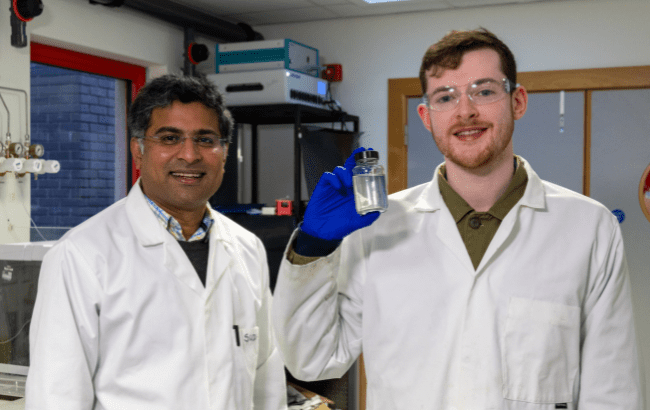Distillery wastewater could create green hydrogen
Scientists at Heriot-Watt University have developed a material that could be used to produce green hydrogen from distillery wastewater.

Edinburgh’s Heriot-Watt said distilleries in Scotland produce an estimated one million litres a year of wastewater from the distilling process.
Globally, the distilling sector is thought to produce approximately one billion litres of wastewater annually.
Dr Sudhagar Pitchaimuthu, a materials scientist at Heriot-Watt’s School of Engineering and Physical Sciences, explained: “It takes 9kg of water to produce every 1kg of green hydrogen. Meanwhile, every one litre of malt whisky production creates about 10 litres of residue.
“To help protect the planet, we need to reduce our use of fresh water and other natural resources. So our research focused on how to use this distillery wastewater for green hydrogen production with a simple process that removes waste materials present in the water.”
Pitchaimuthu and his team have created a nanoscale material – described as a particle that is one in 10,000th the diameter of a human hair – to allow distillery wastewater to replace fresh water in the green hydrogen production process.
The team discovered that the nanoparticle, called a nickel selenide, produced similar or slightly higher quantities of green hydrogen from the wastewater, compared to fresh water.
“About one billion litres of wastewater a year is produced from the distilling industry, so the potential of this process is huge,” Pitchaimuthu added. “Using industry wastewater means we can reduce the extensive freshwater footprint associated with green hydrogen production. Our research also shows how we can use the world’s resources more sustainably to produce clean energy.”
The research team plan to develop their own electrolyser prototype and scale up production of the nickel selenide nanoparticles. They will also analyse distillery wastewater to discover whether other materials of value could be saved from it, alongside hydrogen and oxygen.
Spirits brands are making major moves to ensure their production and practices are more sustainable.
In November 2022, Absolut Vodka became the first global spirit brand to use a partly hydrogen energy-fired furnace to make its glass bottles.
Related news
Mother of Pearl turns to paper bottles at Splash Paris
